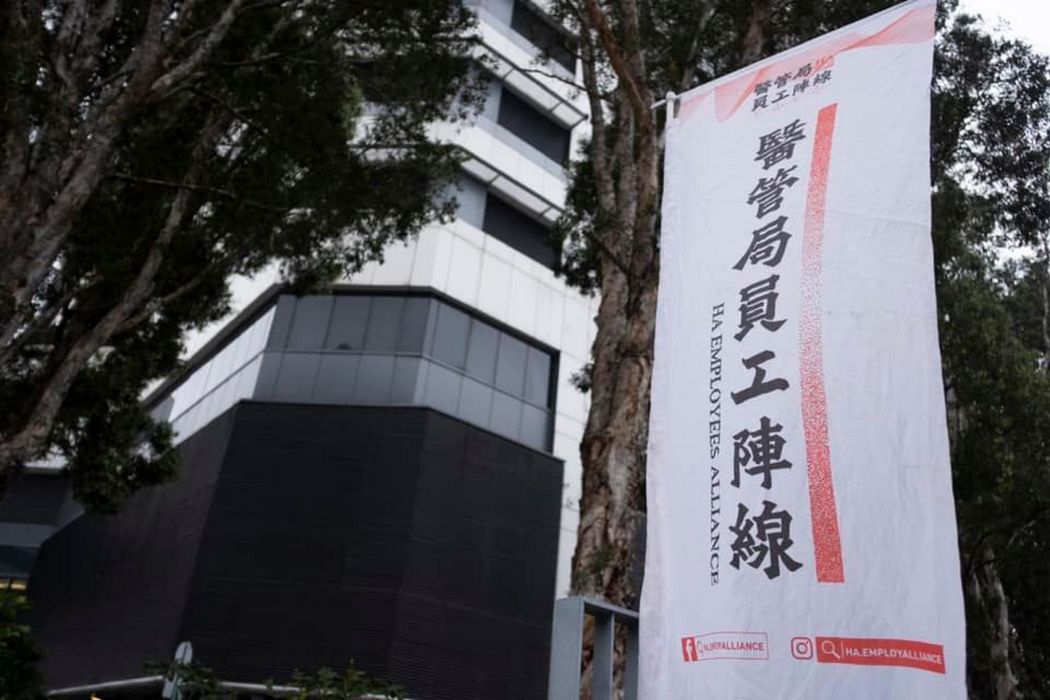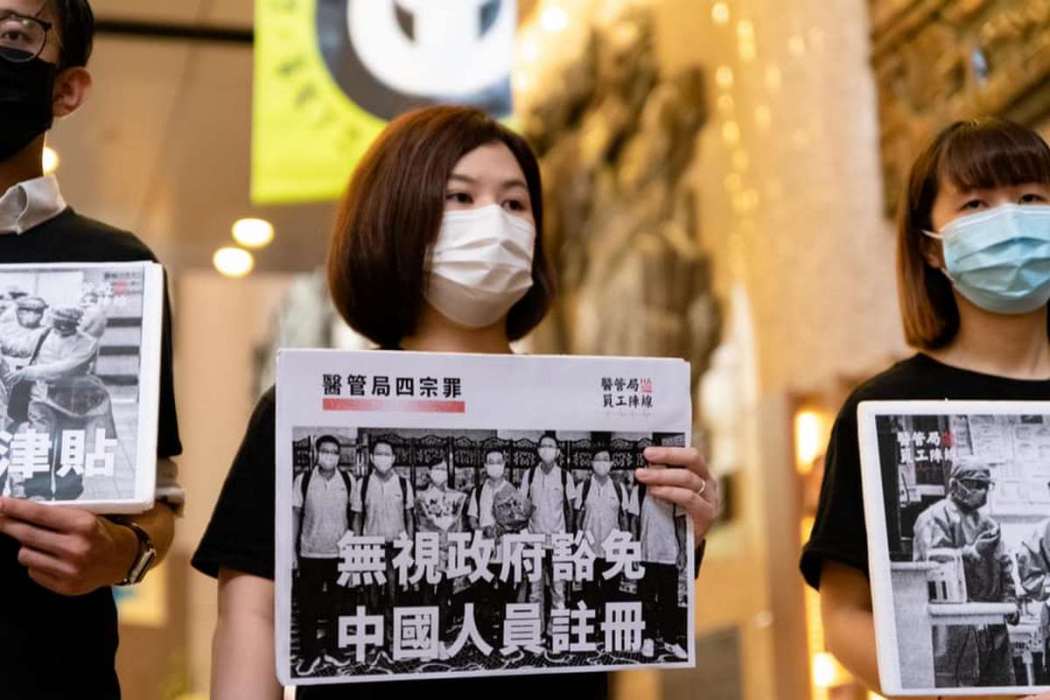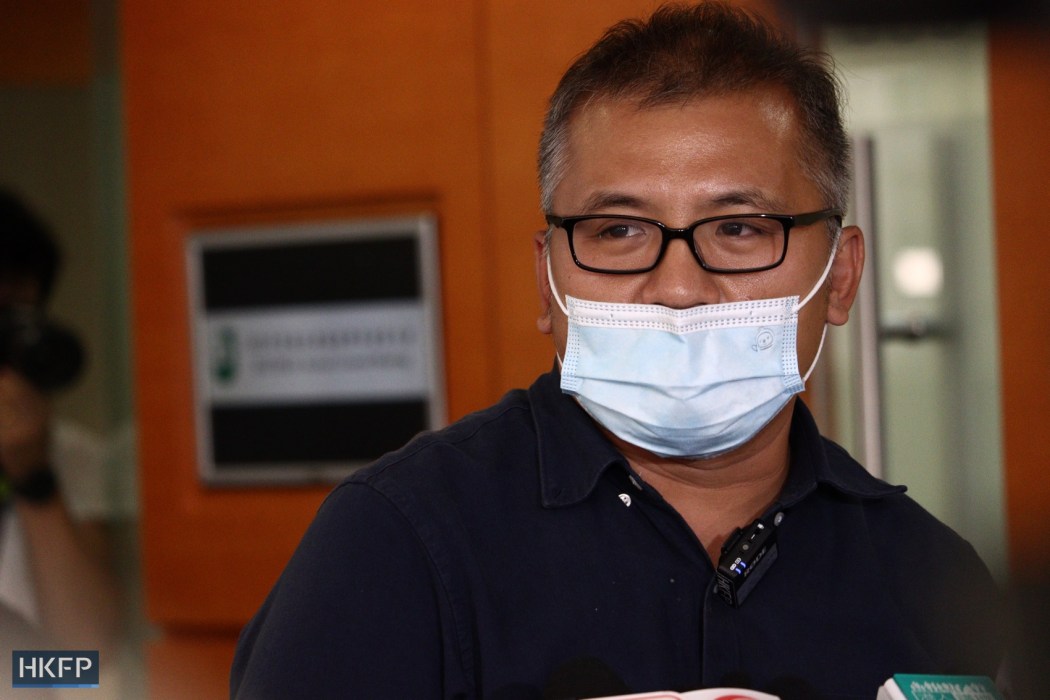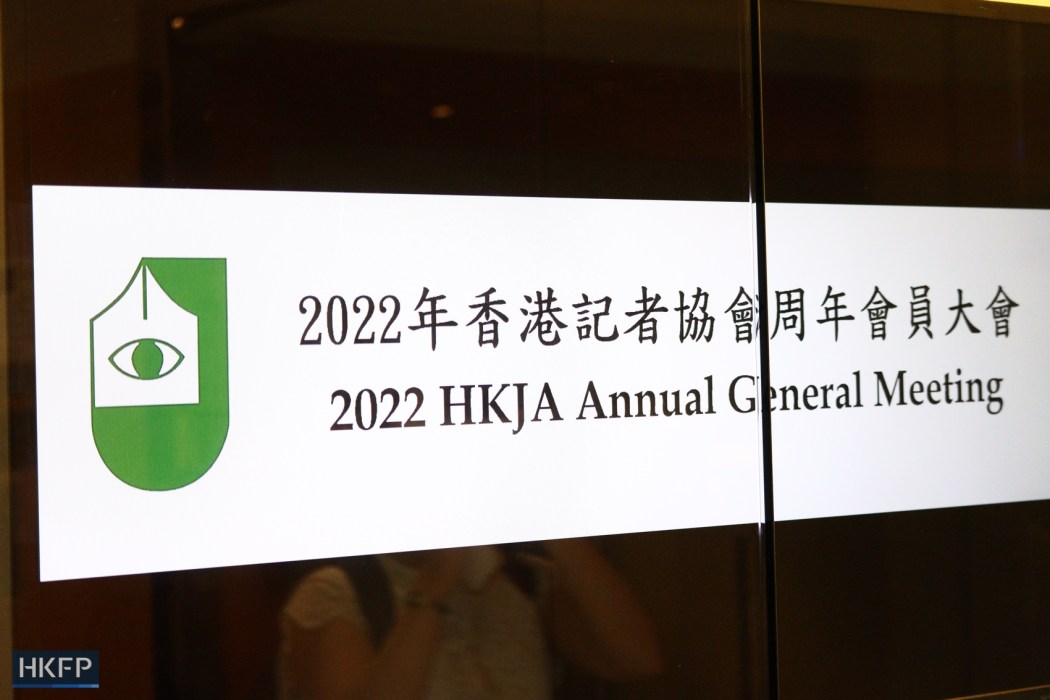A Hong Kong hospital staff union founded in the wake of the 2019 unrest has voted to disband, citing “pressure from all sides.” Meanwhile, a local press union passed changes to its constitution which lowered the threshold for dissolution.

The Hospital Authority Employees Alliance (HAEA) announced on Sunday that its members passed a decision to dissolve the group during an Extraordinary General Meeting held last Thursday. It will officially fold on June 30.
At least 58 civil society groups have disbanded since the onset of the national security law, enacted two years ago this week.
The union, which began operating in December 2019, became known when it led thousands of medical workers to stage a five-day strike in February 2020, when Hong Kong was first hit by Covid-19. The medics had gathered at the Hospital Authority head office to put pressure on the government to react and shut its borders with mainland China to help curb the spread of the virus.
It had also called on the public to “boycott” the government-developed Covid-19 tracing app “Leave Home Safe” over personal data privacy concerns. The authorities responded by “expressing anger” over what it called the spreading of “false information.”

In a Facebook post on Sunday, the union said it had faced “political oppression” and “white terror.” It pointed to its former chairwoman Winnie Yu, who is among 47 pro-democracy figures who may face up to life in prison over an alleged conspiracy to commit subversion under the Beijing-imposed security law.
The nurse and activist is currently behind bars pending trial or sentencing at the High Court, after her bail granted last July was revoked this March when a magistrate ruled that she had breached her bail conditions.
“Amid pressure from all sides and the current political stalemate, we eventually passed a motion to disband the HAEA,” the union wrote on Facebook. “We do not regret choosing to stand at the front of the storm, connecting everyone and doing an act of defiance in this ridiculous era.”

Labour unions have been “targeted” by the government since 2019, the pro-democracy medics alliance said on Sunday. It was among several trade unions which received an inquiry from the Registry of Trade Unions regarding alleged rule violations. It has denied the authorities’ accusations that it had used funds for political purposes.
The HAEA said it “could not escape” from disbandment for “all kinds of reasons,” adding it hoped people would “equip” themselves and “persist in the pursuit of freedom.”
“[Let us] continue to safeguard our values with faith and courage, to defend the remaining soil that has not collapsed,” the HAEA statement read.
Lower disbandment threshold
On Saturday, the Hong Kong Journalists Association (HKJA) held its annual general meeting in which members approved changes to the union’s constitution to make dissolution easier.

The press group may now disband with the consent of a simple majority of votes of the voting membership, as opposed to the original requirement of securing the consent of five-sixths of the voting membership.
Former Stand News journalist Ronson Chan, who was re-elected as chairman on Saturday, said the amendment was proposed after some members expressed concerns over the situation faced by the HKJA. He said the new requirement would give “flexibility” to the executive committee if it comes to making the decision to disband.
“The original threshold is very high… when the constitution was drafted, no one thought the HKJA may need to disband,” Chan said, adding the newly-elected executive did not have any views on disbandment.
Beijing-backed newspapers have labelled the journalist group as an “anti-government political organisation” that defended “fake news.” It also faced criticism from the authorities, with security minister Chris Tang accusing the union last September of “infiltrating” schools to attract student journalists.

The HKJA chairman, who worked at the now-defunct outlet Stand News, has also come under fire by pro-Beijing media. He was described as “hating the police” and deliberately “provoking” officers when he was covering the 2019 protests.
Chan confirmed on Saturday that the HKJA received another letter from the Registry of Trade Unions earlier this month. The administrative body first reached out in January, asking the press group to explain how certain events they held, such as film screenings and book events, were relevant to their objectives.
The HKJA executive committee is seeking legal advice and drafting a reply, Chan said, adding they “did not feel [any] pressure” and all activities it organised were lawful.
All HKFP reporters are HKJA members.
Support HKFP | Policies & Ethics | Error/typo? | Contact Us | Newsletter | Transparency & Annual Report | Apps
Help safeguard press freedom & keep HKFP free for all readers by supporting our team
























